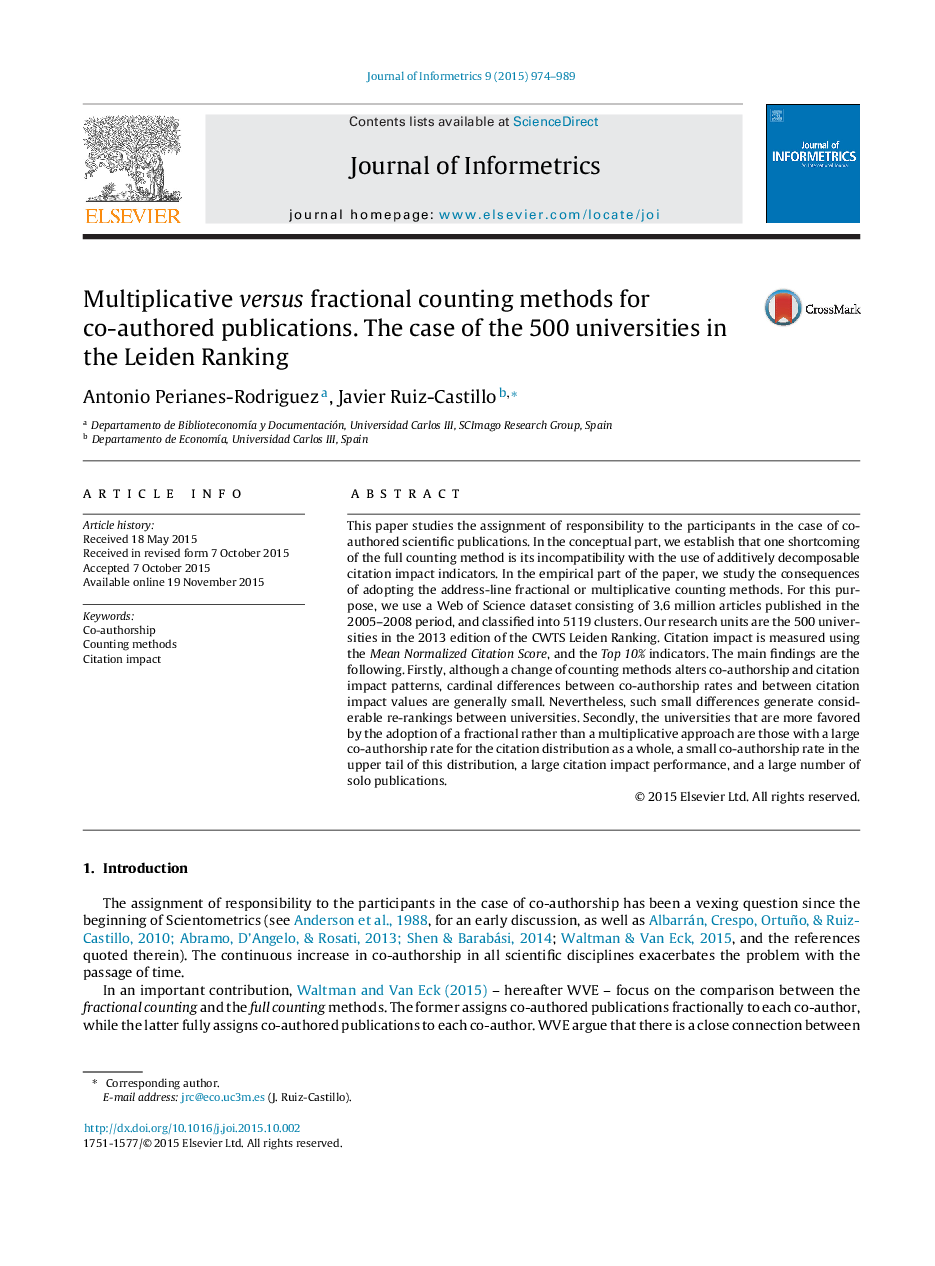| Article ID | Journal | Published Year | Pages | File Type |
|---|---|---|---|---|
| 523096 | Journal of Informetrics | 2015 | 16 Pages |
•We discuss a new shortcoming of the full counting method.•We compare the fractional and the multiplicative counting methods for the 500 Leiden Ranking universities.•Small differences between co-authorship rates and citation impact values generate considerable re-rankings between universities.•We study which type of university benefits from a move from the fractional to the multiplicative counting method.
This paper studies the assignment of responsibility to the participants in the case of co-authored scientific publications. In the conceptual part, we establish that one shortcoming of the full counting method is its incompatibility with the use of additively decomposable citation impact indicators. In the empirical part of the paper, we study the consequences of adopting the address-line fractional or multiplicative counting methods. For this purpose, we use a Web of Science dataset consisting of 3.6 million articles published in the 2005–2008 period, and classified into 5119 clusters. Our research units are the 500 universities in the 2013 edition of the CWTS Leiden Ranking. Citation impact is measured using the Mean Normalized Citation Score, and the Top 10% indicators. The main findings are the following. Firstly, although a change of counting methods alters co-authorship and citation impact patterns, cardinal differences between co-authorship rates and between citation impact values are generally small. Nevertheless, such small differences generate considerable re-rankings between universities. Secondly, the universities that are more favored by the adoption of a fractional rather than a multiplicative approach are those with a large co-authorship rate for the citation distribution as a whole, a small co-authorship rate in the upper tail of this distribution, a large citation impact performance, and a large number of solo publications.
